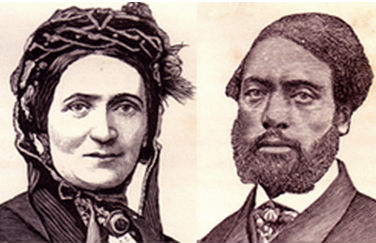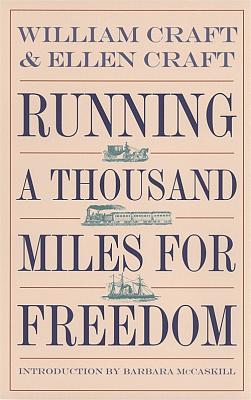William Craft and Ellen Craft
Biography
William Craft (1824 – 1900) and Ellen Craft (1826 – 1891) were slaves from Macon, Georgia in the United States who escaped to the North in December 1848 by traveling openly by train and steamboat, arriving in Philadelphia on Christmas Day. She passed as a white male planter and he as her personal servant. Their daring escape was widely publicized, making them among the most famous of fugitive slaves. Abolitionists featured them in public lectures to gain support in the struggle to end the institution.
As the light-skinned quadroon daughter of a mulatto slave and her white master, Ellen Craft used her appearance to pass as a white man, dressed in male clothing, during their escape.
As prominent fugitives, they were threatened by slave catchers in Boston after passage of the Fugitive Slave Act of 1850, so the Crafts emigrated to England. They lived there for nearly two decades and reared five children. The Crafts lectured publicly about their escape. In 1860 they published a written account, Running a Thousand Miles for Freedom; Or, The Escape of William and Ellen Craft from Slavery. One of the most compelling of the many slave narratives published before the American Civil War, their book reached wide audiences in Great Britain and the United States. After their return to the US in 1868, the Crafts opened an agricultural school for freedmen’s children in Georgia. They worked at the school and its farm until 1890. Their account was reprinted in the United States in 1999, with both the Crafts credited as authors, and it is available online at Project Gutenberg and the University of Virginia. —Wikipedia


